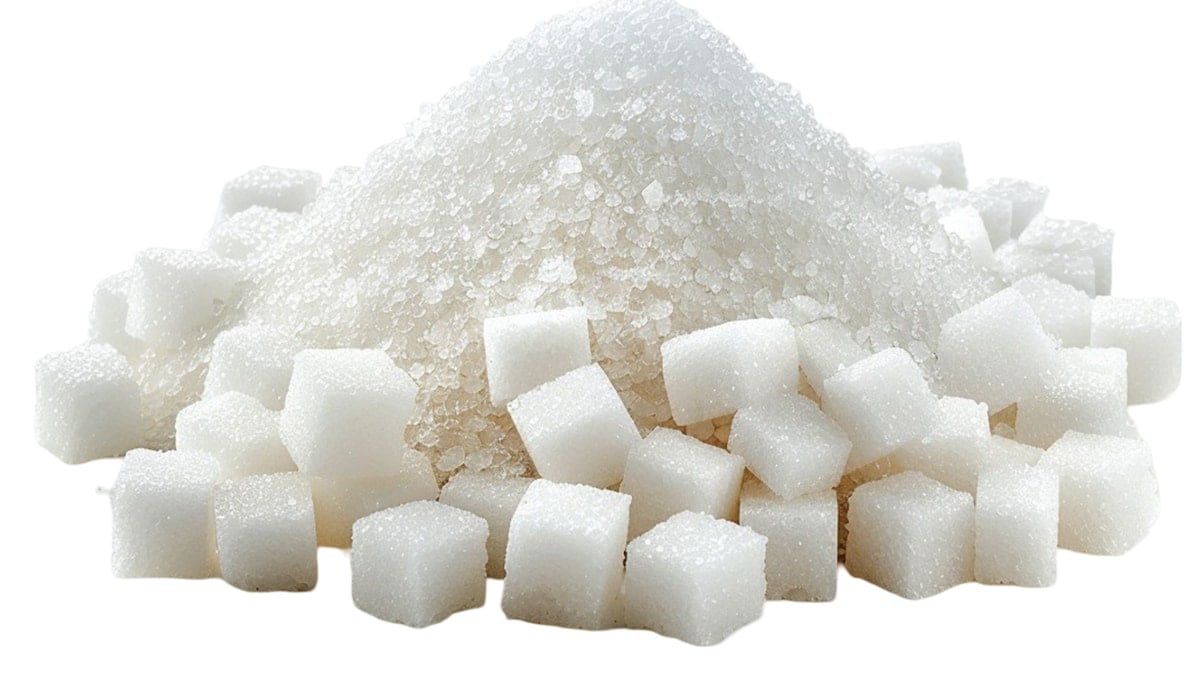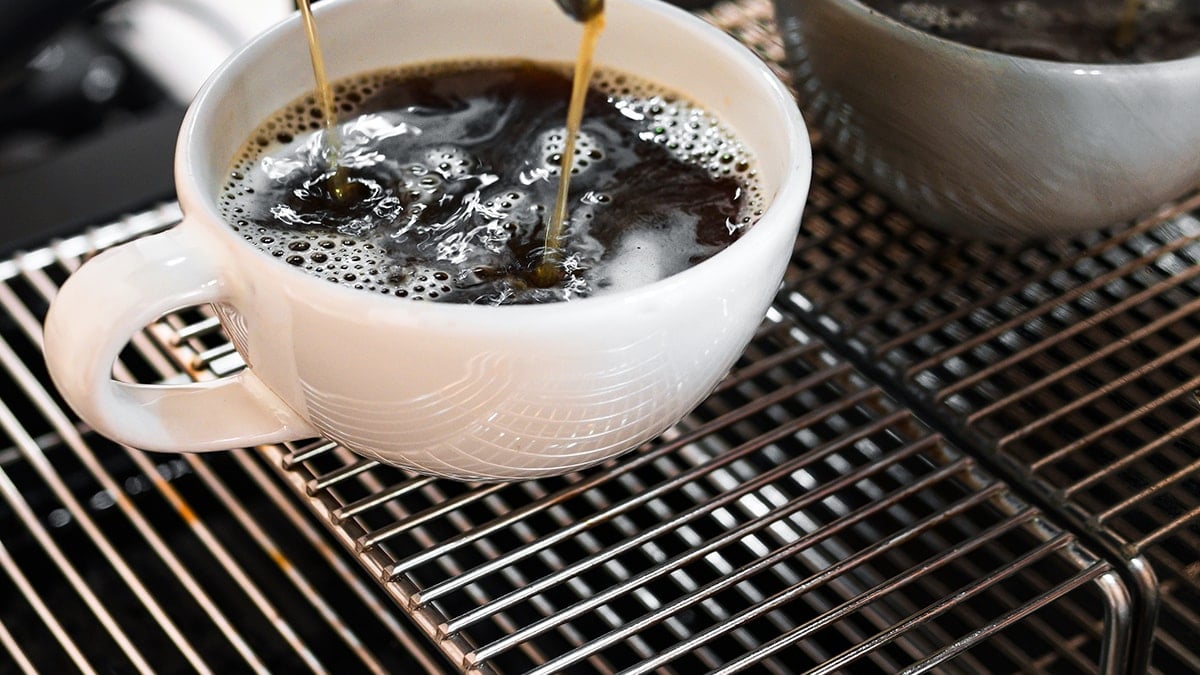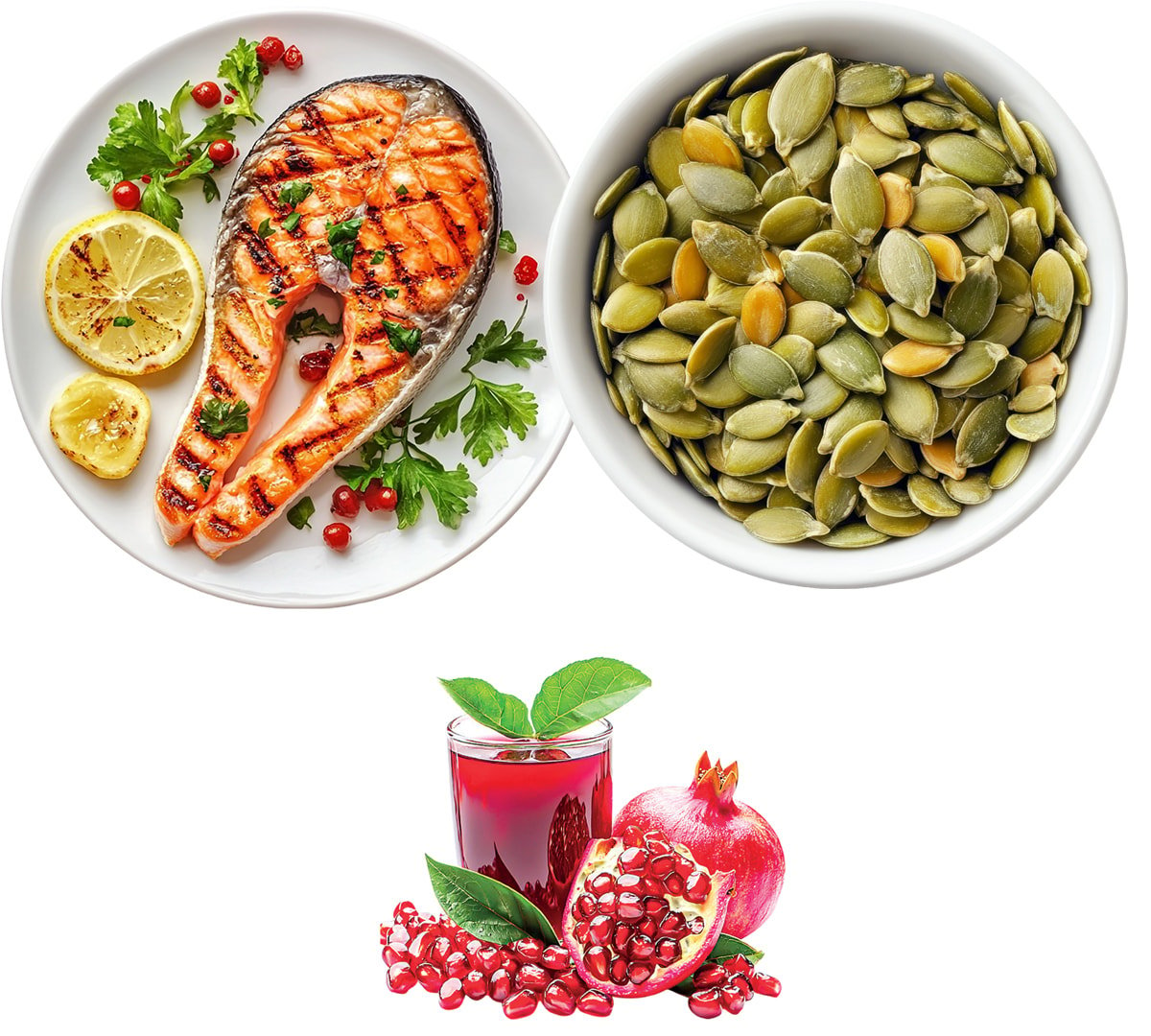Testosterone friendly diet. Dangers and opportunities at the table

Healthy fats are essential for testosterone production. However, this does not mean that every fat is beneficial. Saturated fat sources such as red meat and eggs should be consumed in limited amounts. Excessive saturated fat hardens the arteries and makes it difficult to synthesize testosterone. However, monounsaturated fats such as olive oil, walnuts, avocados, and legumes can support testosterone production. (Source: Journal of Clinical Endocrinology & Metabolism, 2017)

Sugary drinks containing fructose and glucose trigger insulin resistance. This increases the hormones leptin and cortisol, which suppress testosterone production. After consuming 75 grams of sugar (10-12 sugar cubes), a decrease of nearly 25% in testosterone was detected within 2 hours. (Source: American Journal of Clinical Nutrition, 2015)
Hormonal collapse from alcoholAlcohol is one of the most effective ways to suppress testosterone. Especially drinks that contain phytoestrogens, such as beer, increase estrogen levels. Chronic alcohol consumption can permanently reduce testosterone production by impairing testicular function. (Source: Cleveland Clinic – Alcohol and male hormones)

Caffeine, although it has a stimulating effect in the short term, increases the secretion of cortisol. This suppresses testosterone. More than 200 mg of caffeine per day (about 2 large cups of coffee) can negatively affect hormone balance. (Source: Mayo Clinic – Caffeine and endocrine system)
Vitamin deficiencies that lower testosterone- Vitamin D: The body cannot produce testosterone without vitamin D. Deficiency is a common problem. - Magnesium: Increases free testosterone levels. Deficiency leads to fatigue and muscle loss. - Zinc: Plays a direct role in testosterone synthesis. In men with zinc deficiency, hormone levels can be as low as 50%. (Source: International Journal of Endocrinology, 2018)
Hidden estrogens: Plastic containers, ready-made foodsSome additives and BPA, which leaks from plastic containers, have an estrogen-like effect in the body. These substances can disrupt testosterone balance. Plastic containers heated in the microwave are especially risky. Prepackaged foods may also contain similar chemicals. (Source: Endocrine Society – Environmental hormone disruptors)

1. Egg yolk 2. Oily fish (salmon, sardine) 3. Olive oil 4. Spinach and chard 5. Avocado 6. Garlic 7. Walnuts 8. Pumpkin seeds 9. Oats 10. Pomegranate juice 11. Broccoli
12. Dark chocolate (at least 70% cocoa)
These foods support testosterone production with their antioxidant effects and vitamin-mineral content. However, portion control and balanced consumption are essential. (Source: Harvard Men's Health Watch – Testosterone boosting foods)
Herbal supplements Myth or reality?There are some studies that herbal supplements such as tribulus terrestris, ashwagandha, and maca root increase testosterone. However, this effect is usually short-term and is more pronounced in younger age groups. Long-term benefits in men over 50 have not yet been determined. A doctor's approval should be obtained before using herbal supplements. Some products may affect liver enzymes or interact with medications. (Source: National Institutes of Health - Herbal supplements and testosterone)
Tomorrow:- When are needle treatments recommended? - What options are on the table if natural methods are not enough? - Risks and follow-up of hormone therapy
- Things to know before making a decision
SÖZCÜ

